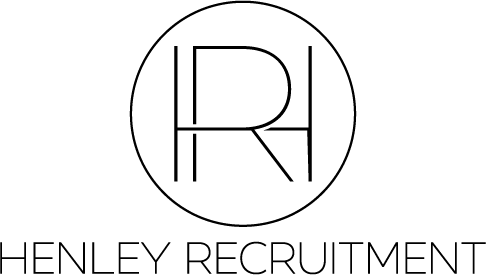Interview advice
Preparing for an interview can be a bit nerve-wracking, but with the right preparation, you can go in confident and ready to make a great impression. Here’s some interview advice, along with common questions you might encounter and thoughtful questions you can ask the interviewer.
01
Do Your Research
Company Research: Familiarize yourself with the company’s mission, values, culture, products, and recent news. You should know what the company does, who its competitors are, and why you want to work there.
Role Research: Read the job description thoroughly. Understand the skills, qualifications, and responsibilities required for the role, and think about how your experience aligns with the position.
02
Practice Common Interview Questions
You’ll likely be asked about your experience, skills, and motivations, so practicing answers to common questions can help you respond confidently and clearly. Use the STAR (Situation, Task, Action, Result) method to structure your responses, especially for behavioral questions.
03
Be Ready to Discuss Your Strengths and Weaknesses
Strengths: Pick strengths that align with the job description and back them up with examples.
Weaknesses: Choose a weakness that you’ve worked to improve. Discuss how you’re actively addressing it and what you’ve learned from the experience.
04
Show Enthusiasm and Positivity
Employers want to hire someone who is genuinely interested in the role and company. Be enthusiastic and show positivity about the opportunity. Employers also want to know that you’re a team player and will mesh well with the company culture.
05
Dress Appropriately
Even if the company has a casual dress code, it’s usually best to dress slightly more formal for the interview. If in doubt, it’s better to be a little overdressed than underdressed.
06
Be On Time
Aim to arrive 10-15 minutes early. It shows punctuality and enthusiasm. If the interview is virtual, test your technology beforehand to avoid technical issues.
07
Listen Actively
Make sure to listen carefully to the questions being asked. If you’re unsure about a question, don’t hesitate to ask for clarification. It’s important to answer the right question!
08
Ask Your Own Questions
Asking thoughtful questions at the end of the interview shows that you are engaged and serious about the opportunity. It also helps you assess if the role and company are a good fit for you.
Common Interview Questions You Might Be Asked
Tell me about yourself.
This is often an icebreaker. Keep it concise but highlight your most relevant experiences, skills, and why you’re interested in this role.
Why do you want to work here?
Show that you’ve researched the company and explain why you admire its values, culture, or products/services. Connect your career goals with what the company offers.
What are your strengths and weaknesses?
Be honest but strategic. Pick a strength that aligns with the job and a weakness that you’re working on improving.
Why should we hire you?
Focus on how your skills, experience, and values align with the role. Highlight what makes you unique and why you’re a great fit for the company.
Tell me about a time you faced a challenge at work. How did you overcome it?
Use the STAR method to describe the situation, the challenge, the actions you took, and the positive outcome.
Where do you see yourself in 5 years?
Show that you’re looking to grow in your career and that the company and role align with your long-term professional goals.
Describe a time when you worked in a team.
Highlight your teamwork and collaboration skills. Again, use the STAR method to explain your role in the team and the outcome of the project.
Why did you leave your last job (or why are you looking for a new job)?
Be honest but keep it professional. Focus on the positive aspects of seeking a new opportunity, such as growth, new challenges, or a better cultural fit.
How do you handle stress or pressure?
Explain your strategies for managing stress, such as staying organized, prioritizing tasks, or taking breaks to reset your mind.
Tell me about a time you made a mistake at work. How did you handle it?
Employers appreciate candidates who can admit mistakes and learn from them. Focus on how you resolved the situation and what you learned.
Questions You Can Ask the Interviewer
Asking insightful questions can help you stand out and show your interest in the role and company. Here are some good questions you might ask:
Can you tell me more about the day-to-day responsibilities of this job?
This gives you insight into what your daily tasks will actually look like, helping you gauge whether it’s the right fit for you.
How do you measure success in this role?
Understanding how the company measures success will help you know what’s expected and how you can excel in the role.
What are the biggest challenges the team or company is facing right now?
This shows that you’re thinking about the bigger picture and want to understand the context in which you’ll be working.
How would you describe the company culture?
This will give you a sense of whether the company’s work environment and values align with yours.
What are the opportunities for professional development or growth?
Asking about growth opportunities shows that you’re committed to learning and evolving in your career.
How do you support work-life balance here?
This is a great question to ask to understand the company’s approach to employee well-being and flexibility.
What is the next step in the interview process?
This shows your eagerness to move forward and helps you understand the timeline.
Can you tell me about the team I’d be working with?
This helps you understand the dynamics of the team, whether you’d be a good fit, and the collaborative nature of the work.
What’s the company’s vision for the next few years?
Asking about the company’s future shows that you’re interested in its long-term goals and how your role would contribute to them.
Is there anything about my background or qualifications that you’d like me to clarify?
This shows openness and allows the interviewer to voice any concerns before the interview ends, giving you a chance to address them.
Be Yourself: While it’s important to be professional, don’t be afraid to show your personality. Hiring managers want to know if you’re a good cultural fit, so let your genuine enthusiasm and interest come through.
Follow Up: Send a thank-you email after the interview to express your appreciation for their time and to reiterate your interest in the role.
With these tips in mind, you’ll be well-prepared to handle any interview with confidence and professionalism. Good luck

get in touch with us today!
But with the right approach, you can increase your chances of success. Here are some tips to help you prepare and negotiate confidently
